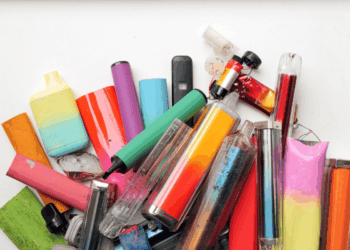Under a recently signed bill, all K-12 schools in Wisconsin will be able to recycle e-scrap through the state’s extended producer responsibility program.
Gov. Tony Evers on Aug. 9 signed into law Senate Bill 248, which makes a number of changes to the state’s 11-year-old EPR law for electronics. The bill also directs state officials to create a grants program to support e-scrap collection in rural areas.
The E-Cycle Wisconsin program covers TVs, computers, monitors, printers and other devices. Registered collectors took in over 20 million pounds of e-scrap during the July 2019 to June 2020 program year.
According to a Wisconsin Legislative Council memo laying out the bill’s provisions, SB 248 will make the following changes:
- Expands the list of schools covered under the program to include all public and private elementary and secondary schools (including charter schools), as well as tribal schools. Previously, the law covered only K-12 public and K-12 private schools that participated in a parental choice program.
- Directs the state Department of Natural Resources (DNR), which oversees the E-Cycle Wisconsin program, to create a grants program to expand collection to underserved areas of the state. Grants may be provided to local governments, for-profit business and nonprofit organizations. According to a fiscal impact estimate, DNR anticipates funding the grants program with fees manufacturers pay when they fall short of their annual targets, and potentially also with manufacturer registration fee revenue. DNR expects to award between $50,000 and $75,000 in grants during the first year – dipping into reserves to help fund them – and then $25,000 to $30,000 in subsequent years.
- Narrows the definition of “consumer printers” to clarify that floor-standing printers, ATMs and point-of-sale receipt printers are excluded from the program.
- Changes OEM registration fee thresholds so that more manufacturers selling very small numbers of electronics in Wisconsin are exempt from paying fees or pay lower fees. This is estimated to reduce state revenues by about $40,000 a year.
- Mandates that OEMs report separately the weight of devices collected from rural and urban counties. Previously, the manufacturers could choose whether to report rural numbers separately. Producers still get a weight bonus for electronics collected in rural areas.
- Transitions the program year from July 1-June 30 to a calendar year schedule.
The DNR provided a summary of the legislation’s impacts in an Aug. 24 email to electronics recycling stakeholders. In the email, DNR noted that it would begin work setting up the grants program later this year.
Many of the changes have been urged by DNR’s annual program report for several years, including in the most recent report released in November 2020.
The bill is separate from a rulemaking process DNR is undergoing that would make other changes to the program.























